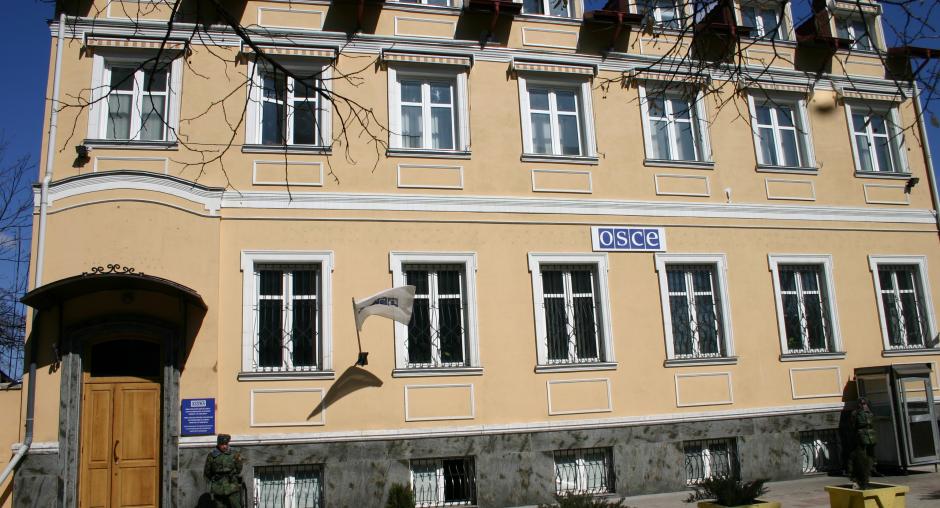
Albania Elections Competitive But Uneven, Observers Report
Elections to Albania’s parliament were competitive and professionally managed, the authorities rose to the challenge of organising out-of-country voting for the first time and candidates could mostly campaign freely, but they were marked by widespread misuse of public resources and institutional power by the ruling party, while numerous reports of pressure on public employees and other voters as well as cases of intimidation were of concern, international observers said in a statement today.
The joint observation mission from the OSCE Office for Democratic Institutions and Human Rights (ODIHR), the OSCE Parliamentary Assembly (OSCE PA), the Parliamentary Assembly of the Council of Europe (PACE), and the European Parliament (EP), found that the legal framework forms an adequate basis for holding democratic elections, although the need remains for comprehensive electoral reform. Shortcomings and ambiguities in the legal framework created uncertainty and limited accountability. Many longstanding recommendations by international observers remain unaddressed, raising concerns about a lack of political will.
“The legal framework and institutional capacity enabled well-run elections, reinforcing a solid democratic foundation, but voters were not given a chance to hear a genuine exchange of political ideas,” said Farah Karimi, Special Co-ordinator and leader of the OSCE short-term observers. “The campaign was focused on hostile and personal attacks, especially by leaders of the two main parties, rather than on solution-based debate. That deepened public distrust in politics. The country deserves honest and constructive politics not just on election day, but every day.”
Some 3.7 million voters were registered to vote in yesterday’s elections, including almost 250,000 registered abroad. Overall, the voter registration process was transparent and the inclusion of out-of-country voters for the first time marked an important step toward broader electoral participation. Albania is continuing to roll out the use of new technologies through biometric identification of voters and electronic voting. Observers noted there was generally high confidence in the use of technology, although some concerns were expressed, mainly by the opposition. Preparations for the elections were efficient and election day itself was generally well assessed, but procedures were often not followed and a number of cases of intimidation and interference in the process were observed.
Simone Billi, Head of the PACE delegation, said: “I recognise the valuable work of the Albanian triumvirate – SPAK, the General Prosecutor’s Office, and the CEC – to effectively coordinate efforts to safeguard the integrity of the electoral process, and the inclusion of the diaspora vote marks an important milestone in Albania’s democratic history. However, we see that progress is still needed in the broader political culture to strengthen public trust and ensure that good governance reaches all levels of society.”
The campaign was characterised by a confrontational and polarizing tone, with the two main political parties using divisive language and attempting to unduly influence voters. Observers noted the misuse of state resources, with senior government representatives engaging in numerous official events that often overlapped with campaign messaging and included the announcement of social benefit programmes and infrastructure projects, giving the ruling party an undue advantage.
“The introduction of out-of-country voting is a commendable development that enables diaspora participation in elections. However, despite recent changes to the legal framework, some previous OSCE/ODIHR recommendations remain unaddressed,” stated Björn Söder, head of the OSCE PA delegation. “Closer alignment with international democratic standards would signal a continued commitment to European values and help reinforce public trust in electoral processes.”
The independence and diversity of the media were undermined by untransparent financing, ownership concentration, and interference with editorial autonomy, which led to self-censorship among journalists and had a negative impact on the amount and quality of information available to the public. The lack of independent reporting also hindered the media’s oversight role. In addition, the observation mission’s media monitoring showed that the two largest political parties dominated the news coverage.
“Albania’s commitment to a future in the EU is an appreciated and rare element of national consensus. Whichever of the two main parties emerges victorious in this election will prove this. However, the conduct of this election should be seen not only through the prism of a well-run election day, but also factor in unilateral steps ahead of the election that impacted the level playing field,” said Michael Gahler, head of the European Parliament delegation. “As elections are a central instrument of democracy all relevant stakeholders must continue to seek to obtain broad consensus on the electoral framework and strive to increase trust in its conduct. Furthermore I call on the new government to build on success already achieved, such as in the field of the judiciary.”
The authority responsible for resolving electoral complaints (CSC) dealt with cases transparently and in public sessions, although its narrow interpretation of the rules on the use of public resources meant that such practices often went unsanctioned. The authority working to combat corruption and organised crime (SPAK) played a positive role in investigating electoral corruption, while closer coordination between SPAK, the election administration, and the General Prosecutor’s Office improved information sharing on election-related crimes.
“While these elections were well managed, our long-term observers witnessed widespread intimidation and abuse of public resources during the campaign,” said Ambassador Lamberto Zannier, who headed the ODIHR election observation mission. “I welcome the new coordination mechanism to combat electoral crimes, as we are witnessing extreme political polarization resulting in excessive pressure on voters and on the electoral process itself. This undermines the positive steps once seen in Albania, and may negatively affect progress towards the achievement of the country’s long-term goals.”
The international election observation to the Albanian parliamentary elections totalled 365 observers from 47 countries, composed of 238 ODIHR-deployed experts and long-term observers, 97 parliamentarians and staff from the OSCE PA, 22 from PACE, and 12 from the EP.
https://www.osce.org/odihr/elections/590610

